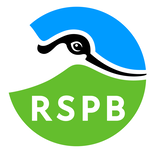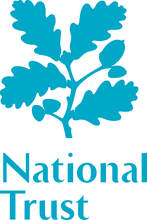
Our Partnership For Life on the Edge
The Royal Society for the Protection of Birds (RSPB) is the largest wildlife conservation NGO in Europe, with more than 2,000 paid employees, more than 17,000 active volunteers, and more than 1.1 million subscribing members. It manages more than 200 nature reserves throughout the UK, covering almost 145,000 ha. In addition, it carries out a wide variety of research, advisory, education and advocacy work. As detailed on Form A7, it has been involved as Coordinating or Associated Beneficiary in a large number of previous LIFE projects.
The RSPB has great experience of creating and improving coastal habitats for the benefit of the birds and other wildlife that depend on them. Approximately 70 (or one-third) of its nature reserves are coastal, and many of these have been significantly enhanced under its ownership rather than simply being maintained. For example, its reserve on Wallasea Island to the east of London has been created largely from arable farmland, and when complete will cover more than 740 ha and be the largest man-made wetland of its type in Europe. Furthermore, the RSPB has helped partner organisations in many other countries protect coastal sites or make them more valuable; examples of these sites include the Poda Protected Area in Bulgaria, the Tana Delta in Kenya and the Chongming Dongtan National Nature Reserve in China.
The Royal Society for the Protection of Birds (RSPB) is the largest wildlife conservation NGO in Europe, with more than 2,000 paid employees, more than 17,000 active volunteers, and more than 1.1 million subscribing members. It manages more than 200 nature reserves throughout the UK, covering almost 145,000 ha. In addition, it carries out a wide variety of research, advisory, education and advocacy work. As detailed on Form A7, it has been involved as Coordinating or Associated Beneficiary in a large number of previous LIFE projects.
The RSPB has great experience of creating and improving coastal habitats for the benefit of the birds and other wildlife that depend on them. Approximately 70 (or one-third) of its nature reserves are coastal, and many of these have been significantly enhanced under its ownership rather than simply being maintained. For example, its reserve on Wallasea Island to the east of London has been created largely from arable farmland, and when complete will cover more than 740 ha and be the largest man-made wetland of its type in Europe. Furthermore, the RSPB has helped partner organisations in many other countries protect coastal sites or make them more valuable; examples of these sites include the Poda Protected Area in Bulgaria, the Tana Delta in Kenya and the Chongming Dongtan National Nature Reserve in China.

- The National Trust for Places of Historic Interest or Natural Beauty ('National Trust' or 'NT') is one of Europe's largest and oldest heritage and conservation NGOs. Established in 1895, the National Trust now owns over 250,000 ha of heritage land- including over 1,250 km of heritage coast- and 29,500 buildings on behalf of the nation, for ever and for everyone. About 40% of the land the Trust owns is covered by statutory designations for its natural heritage value. Over 30% of the Trust's land is designated as Natura 2000. Today the Trust has 5.8 million members, employs over 6,600 FTE staff, and is supported by over 60,000 volunteers. Its total income for 2017/18 was €660 million.
Although totally independent of the State, the NT has unique powers set out in The National Trust Act 1907 and subsequent Acts of Parliament. These powers allow the Trust to declare its land and chattels inalienable. Once declared, this means that the land/chattels can never be sold, mortgaged or compulsory purchased except by special Parliamentary procedure. The Trust is thus perpetual owner of these heritage assets.
The NT has considerable experience of owning and managing N2K designated coastal wetlands - accounting for 17% of its total 250,000-ha landownership.It also owns over 30 individual offshore islands. The Trust through its acclaimed 'Shifting Shores' policy has been at the forefront of driving and influencing coastal climate change adaptation and mitigation. Our stance is to permit natural processes to occur in all except a small number of sites. Northey Island is the top priority for sustainable intervention, in this case to enable designated habitats and species to adjust and thrive.In the 1990s Northey was the site of the first managed realignment pilot scheme in England using natural processes. The Trust has learnt considerable lessons and data from this experience which it will apply to this project and elsewhere.

Funding
The project partners successfully applied to the EU LIFE Nature and Biodiversity fund, and throughout the Project's four years will be able to call on funds of €4,035,459, 60% funded by the European Union and 40% from contributions by the partners.
EU LIFE - https://ec.europa.eu/easme/en/life
Natura 2000 - https://ec.europa.eu/environment/nature/natura2000
The project partners successfully applied to the EU LIFE Nature and Biodiversity fund, and throughout the Project's four years will be able to call on funds of €4,035,459, 60% funded by the European Union and 40% from contributions by the partners.
EU LIFE - https://ec.europa.eu/easme/en/life
Natura 2000 - https://ec.europa.eu/environment/nature/natura2000

